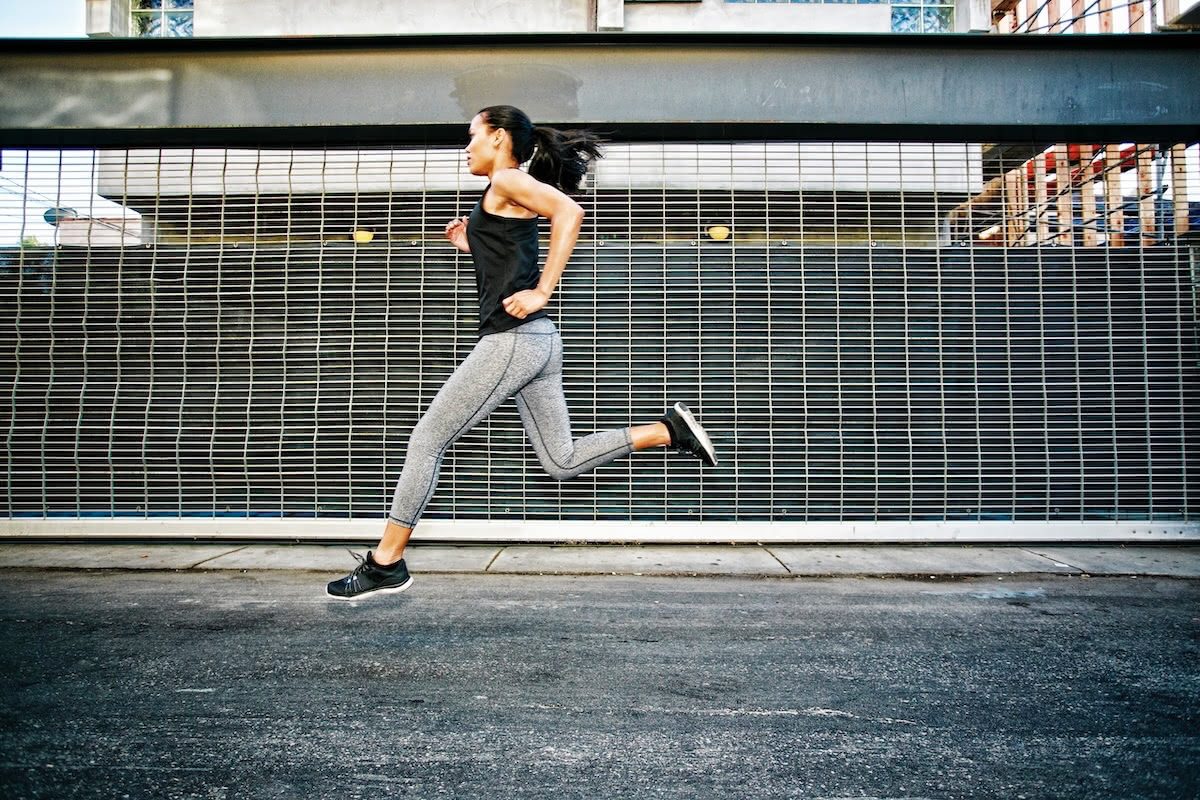Mental Health, Lifestyle Tips
Pro Athletes Highlight Link Between Mental Health and Physical Performance

Psychological factors can influence how you feel on and off the field.
In 2020, Simone Biles and the U.S. women’s gymnastics team were preparing to defend their gold medal at the Tokyo Olympics. But just days before the final, the decorated gymnast withdrew from the competition. “I have to focus on my mental health and not jeopardize my health and well-being,” Biles said at the time. She later revealed that she was suffering from the “twisties,” a psychological phenomenon that affects gymnasts’ ability to control their bodies while performing complex moves.
In the years since, Biles has become an advocate for supporting mental health in athletics. And she’s not the only recent Olympian to share their struggles. American swimmer Michael Phelps, the most decorated Olympian of all time, revealed that therapy has helped him cope with depression, and Japanese Olympian and tennis champion Naomi Osaka has been vocal about her experience with crippling social anxiety. These athletes highlight the importance of caring for your mind in addition to your body to stay at peak overall health. Read on to learn how athletes of any age and skill level can implement best practices for mental and physical health.
Read More: Recognizing and Responding to Mental Health Red Flags
Athlete Mental Health
When Biles had the twisties during Olympic training, it was a prime example of a mental condition directly affecting physical performance. She could not safely perform aerial moves — a key part of her routines — until she overcame the mental block. But the link between mental health and athletic function isn’t always so obvious. Stress, anxiety and depression — the top three mental health concerns identified in a recent study of student-athletes — can come with side effects such as poor sleep, trouble concentrating and difficulty making decisions. All of these can affect performance in sports, making athletes more susceptible to injury. What’s more, going to physical extremes or attempting to push through mental hurdles can lead to increased stress and burnout.
Athletes who don’t have adequate mental health support may also lose interest in a sport that they once felt passionate about. According to an NCAA study on student-athletes’ well-being in 2022, 61 percent of female athletes and 40 percent of male athletes who were considering transferring to another school said the potential change would be due to mental health concerns. Prioritizing mental well-being as much physical aptitude can help keep athletes in peak performance and preserve their love of the game, too.
Mindfulness Techniques for Athletes
Some of the world’s top athletes tap into more than physical prowess to play at their best; they also harness the power of their minds. Training in mindfulness — being fully present in the moment — can develop focus, reduce stress and improve overall performance. Like any athletic pursuit, mindfulness is a skill to be developed through practice. Try these tips before a workout or competition:
- Do breathing exercises: Box breathing is an effective relaxation technique. Breathe in for four counts, hold your breath for four counts, exhale for four counts, and hold for four counts. Then repeat.
- Try mindful motion: Athletes from Tom Brady to Maria Sharapova have used yoga to strengthen their bodies and improve their mental fortitude. Even going for a peaceful walk — ideally without a phone, music or other distractions — can improve mindfulness.
- Practice gratitude: Keep a gratitude journal to remind yourself all you have to be thankful for. Whether it’s winning a big game or having a coach who supports you, reflecting on your blessings can help you focus on the positive.
- Check in with your body: Lie down in a comfortable spot and do a body scan — with your eyes closed, notice how your body feels, slowly progressing from head to toe and taking time to relax your muscles as you go.
Read More: 4 Ways Student-Athletes Can Prevent Injury
Performance Anxiety Solutions
Sports-related performance anxiety can be any sort of fear, apprehension or stress related to playing a sport, including fear of failure, overthinking and low confidence. Anxiety can have a lasting effect on athletes, harming their performance, increasing their risk of injury and delaying rehabilitation after getting hurt. Athletes often overcome performance anxiety with pregame techniques. These include listening to calming music, engaging in positive self-talk, and meditating to focus their attention and keep their minds free of anxiety.
Self-Care for Athletes
Whether you are playing in a recreational league or preparing for a career in sports, setting up a self-care routine can help your body and mind. Try incorporating some of these techniques before or after your activity:
- Eat nutrient-dense foods: Food is fuel for your body, yes, but it also benefits your mind. Eating food rich in zinc and omega-3 fatty acids may help relieve anxiety, research shows.
- Stretch: Playing a sport takes a toll on your body, so try a deep stretching session after a big game or keep up a daily yoga routine. Stretching can aid in muscle recovery and lessen the risk of injury. It also helps the body produce serotonin, which reduces stress and stabilizes your mood.
- Take a bath: Soaking in Epsom salts eases achy joints and muscles and is widely thought to help your body produce mood-boosting serotonin. Plus, a good long soak in the tub can lower stress and make you feel calm.
- Make time for nonathletic interests: Whether it’s reading a good book or hanging out with friends, be sure to do things that aren’t related to your sport to give your mind and body a rest and bolster your sense of purpose — after all, you are more than just an athlete.
- Spend time in nature: Go for a walk in the park or around the block. The fresh air can calm your mind and reduce stress.


